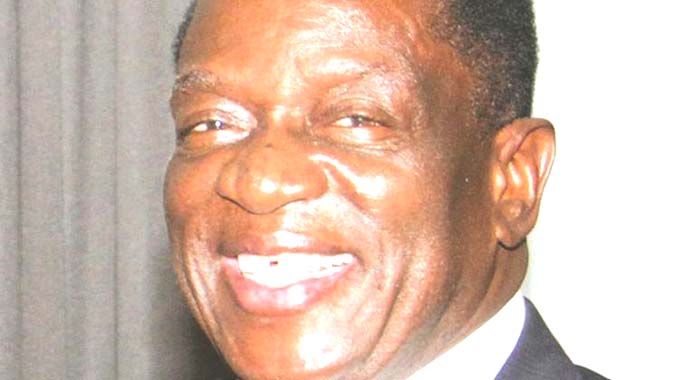How Bubi Shelter is responding to GBV

Simiso Mlevu Staff Writer
“I miss my husband who committed suicide on October 11 last year. The previous day, he went berserk, repeatedly hit me with an iron bar, an assault that broke my spine.”
Thirty-six-year old Patricia Zulu (not her real name) of Mahlabatini Village 4 in Bubi, Matabeleland North Province, is now confined to a wheelchair and vividly recalls the events that led to her disability.
As she sits by the entrance to a thatched hut from where other women are preparing lunch for a group of visitors, Zulu helps where she can.
Her heart sinks as she watches other women run around performing household chores, something she could also do with ease a few months ago.
Zulu does not blame her late husband for her fate, and takes each day as it comes.
Today, she is one of the women staying at Bubi Shelter which offers a safe haven for survivors of gender-based violence (GBV).
At least 15 other women and their six children (12 years and below) who have escaped the claws of GBV are housed at the Bubi Shelter.
Bubi in Zimbabwe’s Matabeleland North Province, Zulu’s home since marriage, is a farming and mining area comprising seven districts and 23 wards.
In this part of Zimbabwe, locals say, gold mining activities have brought the good and bad in equal measure whenever fortune seekers from all over the country descend on the area, in search of the precious mineral.
With the gold rush, violence in all its forms — physical, sexual, financial, emotional and verbal — has stuck out like a sore thumb.
In such situations, women and girls in Bubi are the worst affected, The Herald heard.
Sometimes, the violence is perpetrated by a close relative, leaving the woman or girl between a rock and hard place, with nowhere to go.
The growing numbers of women and girls knocking on the doors of Bubi Shelter, which is supported by the United Nations Population Fund (UNFPA) and managed by Musasa Project, is testimony to how society is waking up to the reality of GBV.
Some of the women and girls come through referrals, others on their own.
To date, Bubi Shelter, which was opened in 2014, has provided services to 260 women and girls.
With UNFPA support, Musasa Project is also refurbishing facilities to ensure they are disability friendly as they are also providing services to persons like Zulu.
Recently, UNFPA–East and Southern Africa (UNFPA-ESARO) regional director Dr Julitta Onabanjo, who was in Zimbabwe for the Sixth African Regional Summit on Sustainable Development, visited the Bubi Shelter where she experienced first-hand the positive impact the intervention has had on survivors of GBV.
Survivors spoke of their experiences and how the shelter has helped them.
At the shelter, the survivors are provided with temporary accommodation, bedding, meals and toiletries that include bath towels, toothpaste and brushes, bath soap, sanitary pads, etc.
This is mainly to cater for their immediate needs as and when episodes of violence occur, especially in the home, such women often leave with nothing as they flee for dear life.
Survivors accompanied by their minor children are also accommodated at the shelter maintaining the bond between mother and child.
If an episode of violence erupts during a school term, the shelter workers work with the Department of Social Welfare to ensure that children of survivors do not miss out on school.
Musasa programme officer Princess Khumalo explained the steps taken each time a woman or a girl comes to the centre, which is open 24 hours a day.
Upon arrival, no matter the time of day, the woman or girl is immediately attended to and asked to fill in a form with details of her case.
Counselling follows and cases involving sexual abuse are referred to the local clinic and the police Victim Friendly Unit (VFU).
Victims of sexual violence, she says, may also require services like Post Exposure Prophylaxis (PeP) to prevent HIV infection and the first 72 hours are a crucial window.
Some survivors who walk in do not need shelter, but just require counselling.
Survivors of all ages have passed through their doors, the oldest being a 70-year-old woman.
She was embroiled in an estate dispute with her son who wanted to evict her from her matrimonial home culminating in violence.
In Bubi, the GBV referral pathway is strong and intertwined with the VFU, National Prosecuting Authority (NPA), magistrates, public health officials and Government departments, political leadership, traditional leadership and locals, among others, playing a huge role, a model that excited Dr Onabanjo.
“The whole of Africa should emulate the Bubi Shelter model,” she said. “We are happy to invest in this sort of partnership.”
Dr Onabanjo emphasised how ownership of the project by the community was key showing appreciation of what was being done on the ground.
“Sustainability is vital,” she said. “Self-reliance and ability to build capacity and education, livelihood skills is important. If you have this, you are able to struggle through and survive.”
Musasa Project director Mrs Precious Taru took visitors back down memory lane, explaining how the shelter came to be.
In its formative years, Bubi Shelter was temporarily housed within neighbouring Bekezela Home Based Care facilities.
The space was too small, and back then, they could only house seven survivors. Sometimes numbers rose to 12 at a time.
“You cannot turn away a survivor,” said Mrs Taru.
Because of the demand for the service, the local traditional leadership played their role, by providing two hectares of land where they built a bigger shelter.
“This also ensures we reach more women and girls in need of services,” she said.
The concept of sustainability also came through, resulting in them starting a poultry project in 2017 to ensure survivors and the community got skills.
At the shelter, survivors and local residents also tend to a garden which currently has maize, pumpkins and sweet potatoes, among other crops.
Sales proceeds from the poulrty and garden are put ploughed back into the running of the shelter.
At the Bubi Shelter, some women stay longer for varying reasons, sexual abuse of a minor or rape within the family set-up being cases in point.
When a survivor is reintegrated into society, several follow-ups are made — the first after 24 hours, the second two weeks later to check on the welfare of the survivors.
“If there are challenges, we might have to take them back and engage with the Department of Social Welfare,” said Mrs Taru.
They also engage pepretrators and victims of verbal abuse, especially married couples, through counselling sessions.
Sometimes, community sensitisation meetings are held to educate society on the impact of GBV on women and girls.
Chief executive officer of Bubi Rural District Council Mr Patson Mlilo said thanks to the shelter, cases of GBV were now being reported.
The 2015 Zimbabwe Demographic Health Survey (ZDHS) confirms that violence against women is rife in Zimbabwe and affects all women, regardless of geographic location, wealth or education.
According to the ZDHS (2015) at least 13 percent of women have experienced physical violence and about the same number have experienced sexual violence.
In response to the upsurge in GBV cases, Zimbabwe’s Domestic Violence Act makes provision for the protection and relief of victims of domestic violence and provides for matters connected with or incidental to that.
Most acts of domestic violence are criminalised except in emotional, verbal, psychological and economic abuse, which can only be subject to civil proceedings.
March is women’s month, with the International Women’s Day (IWD) being marked on the 8th of each year.
IWD is dedicated to celebrating women’s achievements in the social, economic, cultural, and political spheres.
The day, collectively founded by women, also puts spotlight on gender parity and women’s rights.
The theme for IWD 2020 was “I am Generation Equality: Realising Women’s Rights”.
Sadly, some women like Zulu, face various social challenges like GBV.
Others face political and financial exclusion which strips them of their rights, thereby reversing the gains.
As Zimbabwe celebrates women’s month, it is important to remember survivors of GBV and celebrate interventions being put in place by Government and its partners to better their lives.







Comments